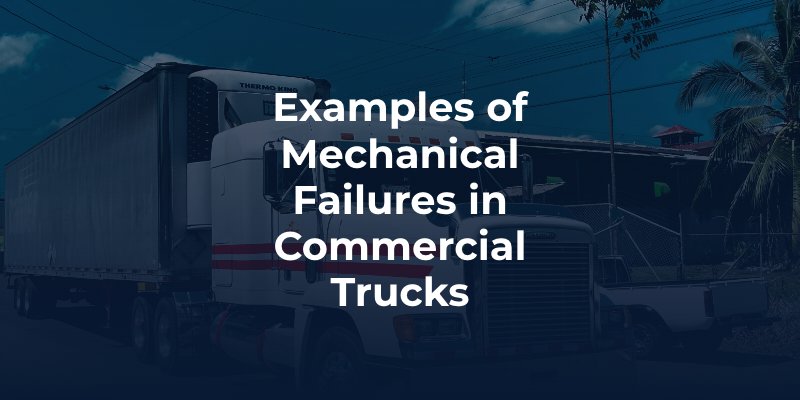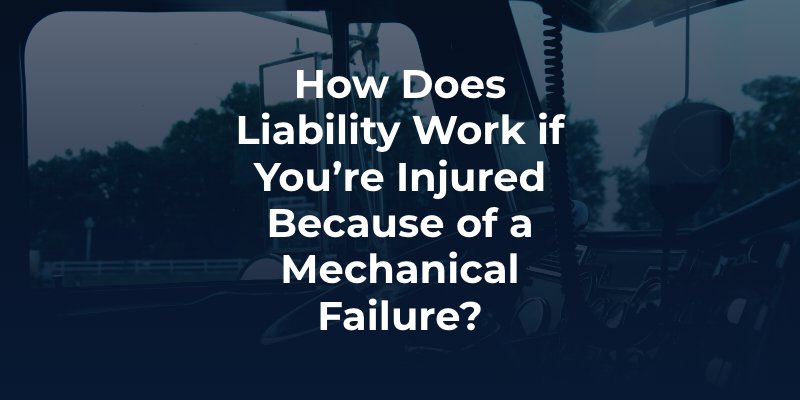Truck crashes are a common sight on highways and streets, and the damage they cause can be life-changing. When a huge tractor-trailer or delivery truck is involved in a wreck, the results can be devastating. Sadly, these accidents are not rare and are responsible for serious injuries and deaths every year.
One thing that often gets overlooked is how often mechanical problems inside the truck cause these accidents. Finding out exactly what went wrong can make a major difference, not just in preventing future accidents, but also when families and victims look for answers and seek justice after they’re hurt.

Common Types of Mechanical Failures in Trucks
Truck accidents aren’t always the driver’s fault – sometimes, the cause can be found in the truck itself. Here are some of the mechanical problems that can lead to a crash:
- Brake Problems: Trucks are heavy, so working brakes are a must. If the brakes aren’t checked often or start to fail, it can take much longer to stop a truck. That can easily lead to dangerous accidents.
- Tire Issues: Bald spots, cracks, or old tires can burst at high speeds, causing the driver to lose control and swerve into other lanes. This can be especially scary on highways or in bad weather.
- Steering Malfunctions: If the steering system isn’t working as it should, a driver might not be able to keep the truck steady or steer away from obstacles, leaving everyone around at risk.
- Lights and Signal Failures: When lights don’t work, other drivers may not see when a truck is stopping or turning, which leads to illegal lane changes, rear-end collisions, and confusion.
- Engine Breakdowns: If a truck’s engine suddenly gives out – maybe from overheating, lack of oil, or missed repairs – it can come to a halt in the middle of traffic or behave in an unpredictable way, leading to accidents.
Catching these mechanical problems early and making sure trucks are in good condition keeps everyone on the road safer. These details are also very important when figuring out what really caused a crash.
Your Case Will Get
The Attention It Deserves

Regulations and Responsibilities to Prevent Mechanical Failures
The Federal Motor Carrier Safety Administration (FMCSA) has strict rules that apply to anyone who owns or operates a truck. These regulations require that trucks be kept in working order and checked on a regular schedule.
- 5.2 Inspection, Repair, and Maintenance (Part 396)
- Each motor carrier and intermodal equipment provider must systematically inspect, repair, and maintain all commercial motor vehicles (CMVs) under its control. Every employee of a carrier that is directly involved with the inspection and upkeep of vehicles must comply with the rules and regulations of 49 CFR 396.
- Parts and accessories shall be in safe and proper operating condition at all times. These include those specified in 49 CFR 393 and any additional parts and accessories that may affect safety of operation, including but not limited to, frame and frame assemblies, suspension systems, axles and attaching parts, wheels and rims, and steering systems. Pushout windows, emergency doors, and emergency door marking lights in buses shall be inspected at least every 90 days.
The FMCSA sets the standard for how often inspections need to happen and what must be checked to make sure vehicles remain roadworthy.
Employer Responsibilities
Trucking companies have a big role to play in making sure their fleets are safe. They’re required to provide well-maintained vehicles, keep detailed records of repairs and checks, and make sure that problems are fixed before trucks hit the road again. Employers also have to make sure their drivers are trained to spot dangers and report mechanical issues as soon as they arise.



How Liability Works if You’re Injured Because of a Mechanical Failure
When someone is hurt in a truck accident caused by a mechanical problem, figuring out who is legally responsible can be confusing. Here’s how liability is usually determined in these situations:
Trucking Company Responsibility
If a trucking company fails to maintain its vehicles or skips key inspections and repairs, it can be held liable for any injuries that occur as a result. The company is expected to keep its trucks safe and in working condition and is responsible for ensuring all parts are checked regularly.
Truck Driver’s Actions
Drivers are required by law to inspect their truck before trips and report any obvious issues. If a driver ignores warning signs like worn brakes or bald tires and an accident happens because of a missed issue, the driver may share liability with the company.
Maintenance Providers
Sometimes, companies hire outside mechanics to service or inspect their trucks. If the maintenance shop or mechanic fails to do their job or installs a part incorrectly, they can also be found responsible if a mechanical failure leads to an accident.
Parts Manufacturer
There are times when a truck part fails, not from lack of maintenance, but because it was defective from the start. When this happens, the manufacturer of the part or even the whole truck might be liable for injuries if it’s found they sold a faulty product.
Liability in these cases involves looking closely at repair records, maintenance logs, and the parts used on the truck to see who could have prevented the accident. If you have any questions about an accident or need help, contact us today to schedule a free consultation with a truck accident attorney.




